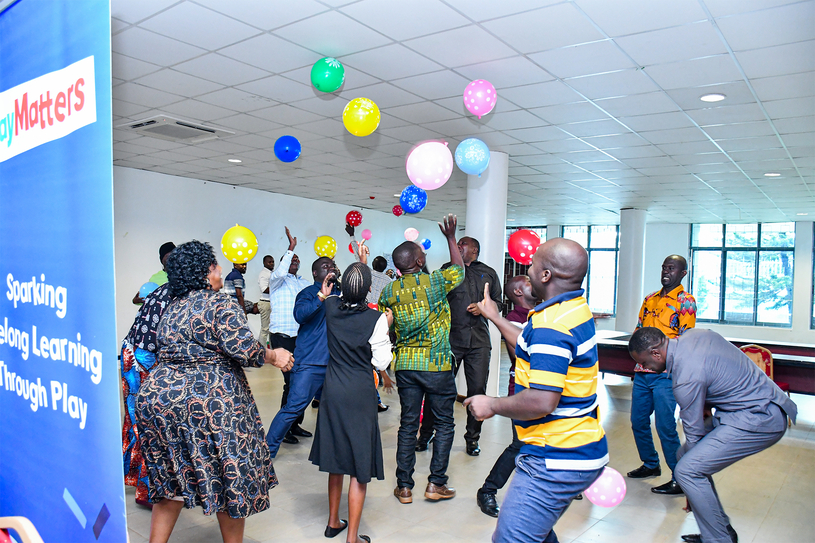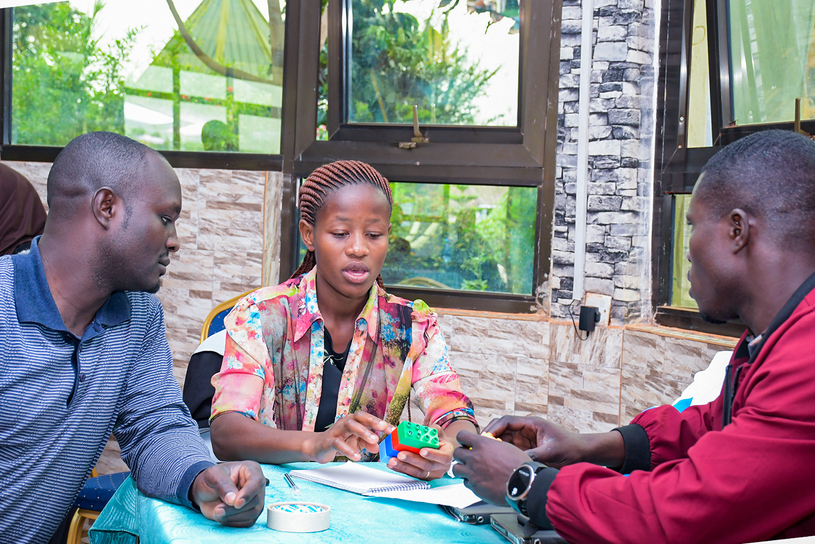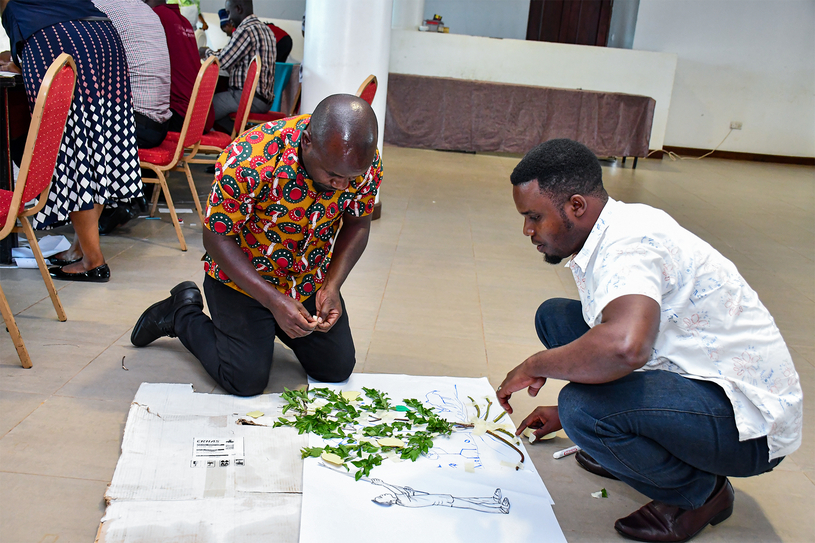Tanzania approves Learning through Play educator content
A successful approval to rollout play-ful teaching and learning methods into the Continuous Teacher Professional Development Framework
May 10, 2023

In February, the Tanzania PlayMatters team successfully secured approval from the Tanzania Institute of Education (TIE) to use the national Teachers' Continuous Professional Development (TCPD) framework to incorporate learning through play approaches in teaching learners in primary schools. This significant achievement came after a series of national engagements with TIE to refine the co-created educator content, which includes a teacher resource book, a teacher playful activity manual, and a facilitator's guide.
The guides cover various topics, including playful teaching and learning strategies, inclusivity, as well as teacher and student well-being, and will be used to train primary school teachers to apply these playful approaches in schools in Kibondo and Kasulu districts.
Speaking during the training, Ms. Dorothy Rowland, representing the Director of TIE, said, "Through this training, we expect teachers to gain knowledge and skills on how they can teach students through the use of play, considering the 21st Century skills which are collaboration, communication, creativity, and critical thinking that will benefit children in their daily lives."

Teachers interact with six bricks during the teacher training in Kibondo District.
Six tutors, six school quality assurers, and two District Academic Officers received training on the use of learning through play methodologies and improvising teaching and learning aids from locally available materials including sticks, papers, bottle lids, sand, and mud. These materials will help teachers teach different lessons, including reading, writing, and arithmetic.
Jonathan Paschal, TIE Coordinator for the PlayMatters project, explained, "The PlayMatters project contributes to the implementation of teachers' continuous professional development to pre and primary school teachers, which will improve teachers' practices by employing learning through play strategies into their teaching and learning."
Through the cascade model, the training was later passed down to 159 (49F, 110M) primary school teachers from nine schools. The teachers were trained on how to make lessons actively engaging, socially interactive, joyful, meaningful, iterative, ensure maximum attentiveness, and monitor both teachers and students' wellbeing.
Trezia Edwin, a teacher at Kumkugwa Primary School, said, "This training has enabled us (teachers) to improve teaching and learning by using learning through play strategies. The training has given us the capacity and skills to include all students during the teaching and learning as well as to identify and support students with psychosocial challenges."
Research has shown that children learn fast through play as play helps children socialize, collaborate, communicate, tolerate each other, and perform various actions in the learning and teaching process. Therefore, this approach will help them gain knowledge and skills that will help them solve various challenges in their lives.
Currently, the PlayMatters project is implemented in nine schools in Kibondo district and five in Kasulu district. By 2026, the project hopes to reach more than 100,000 children from over 99 schools in the two districts.

Some of the participants use available locally made materials to make teaching aids that can be used to teach learners in schools.
The successful engagement between the PlayMatters project and the Tanzania Institute of Education to incorporate learning through play approaches in primary schools is a significant achievement. It will help teachers improve their practices and provide students with skills and knowledge to strengthen their cognitive ability, social interaction, physical growth, emotional aspects and creativity. The project's future success will depend on its ability to sustain its implementation and scale it up to reach more schools and students.